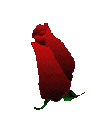
In this particular scene of Beowulf where our hero Beowulf attacks Grendel's
mother in her lair, Fate and a higher holy power become an integral part of the poem. While
Fate and God are discussed a lot with regard to the warrior code, there is very little evidence
of Fate actually intervening in the lives of any of the discussed warriors. In this scene
Fate and the higher power finally step in and prove that Beowulf's speeches of the past
were not simply just words - they were true words. Fate gives Beowulf the means to defeat
Grendel's mother and God ultimately gives Beowulf victory in the battle. Their role in
this scene saves the life of our fearless hero, sparing him in battle - this time.
"Fate often saves an undoomed man when his courage is good" (Howe, 12). For the first time in this epic poem, the reader is given an example of Fate protecting the courageous warrior as Beowulf promises before he faces Grendel. When he takes on Grendel's mother in battle, it is Fate that stands on Beowulf's side and protects Beowulf. Fate presents itself in two separate forms in this scene; each form aids Beowulf in battle and protects his life. The first form Fate takes is that of Beowulf's body-mail. Thankfully, Grendel's mother cannot pierce the body-mail with her claws or crush him with her powerful grip. The second form that Fate takes is that of the great sword forged by giants. If this sword had not been strategically placed where Beowulf could see it and get to it, he would surely have perished at the hands of Grendel's mother. Fate's role in this scene is subtle yet powerful. In conjunction with (or on behalf of) God, Fate creates a situation where Beowulf will defeat Grendel's mother with a weapon found in her own home with the ability to slice through her body and the body of her vile son.
"And holy God brought about victory in war; the wise Lord, Ruler of the Heavens, decided it with right, easily, when Beowulf had stood up again." (Howe, 27) What appears to be a Judeo-Christian God has now decided that Beowulf will not lose this battle. God makes his decision as Beowulf stands up to face Grendel's mother again and chooses his courageous warrior over the mere-woman as the victor. The role of God, while it is somewhat ambiguous and contrary to the role of Fate, is almost like a protector of his children - not his outcasts. In this scene God definitely steps in to choose Beowulf over Grendel's mother since he is the wise Ruler of the Heavens that, of course, knows that Beowulf is a brave warrior and Grendel's mother is nothing but a monster; how could God choose a monster over a brave warrior? God, assumedly, guides Beowulf through the rest of the battle, giving him the will and the strength to fight Grendel's mother with the sword forged by giants.
While both the roles of God and Fate are discussed in Beowulf, one must wonder how exactly are they different? Is Fate simply an extension of God in this poem? Or are Fate and God two different entities acting completely separate of each other? Does Beowulf openly place his beliefs more in one than in the other? It seems that Beowulf has more faith in Fate than he does in God. The words about God never truly seem to come from Beowulf's mouth. Instead, the beliefs about God are spoken by our faceless narrator that seems to push aside the importance of Fate as it might have been to the Anglo-Saxons. Whatever the case might be, both entities apparently work together to protect the great warrior, Beowulf.
In the end Beowulf repays Fate and God by being a true warrior with honor, nobility
and courage. Beowulf does not back down from this fight with the monster, nor does
he become greedy and take treasure from the cave of Grendel and his mother, nor does he
not take excessive pride in his abilities. Instead, upon Beowulf's return to the
surface, God is promptly thanked by Beowulf's loyal warriors and friends. Beowulf
and the warriors of his time are unshakeable in their faith and Beowulf proves this
by going into battle with his belief in Fate and God and allowing them to protect
him and guide him through the battle. Fate and God grant Beowulf victory in this
battle with the kin of Cain because Beowulf is the epitome of everything a warrior
should be. For Beowulf, Fate and God prove themselves to be the perfect
allies in battle - as he has always believed them to be.

